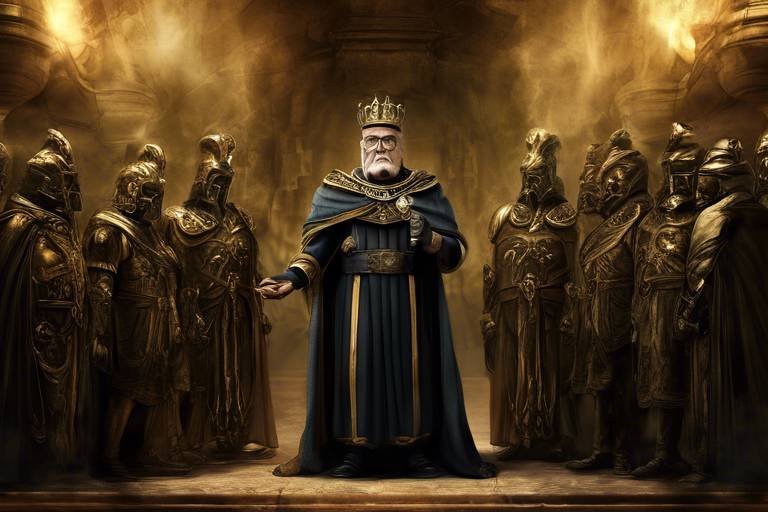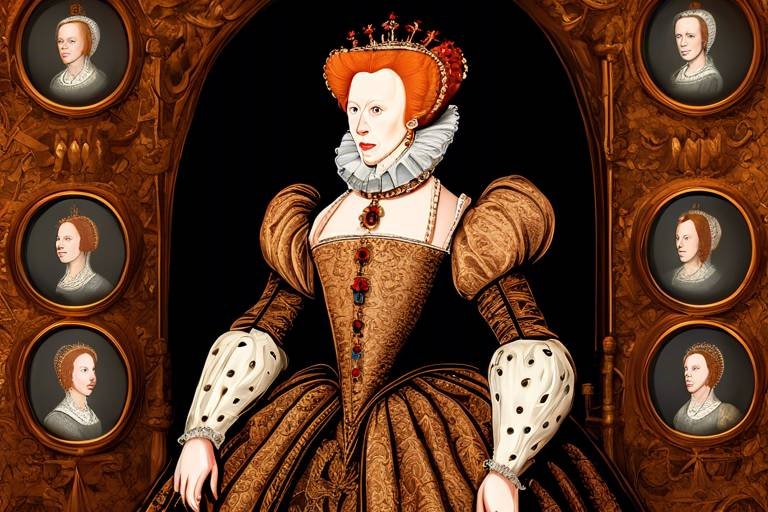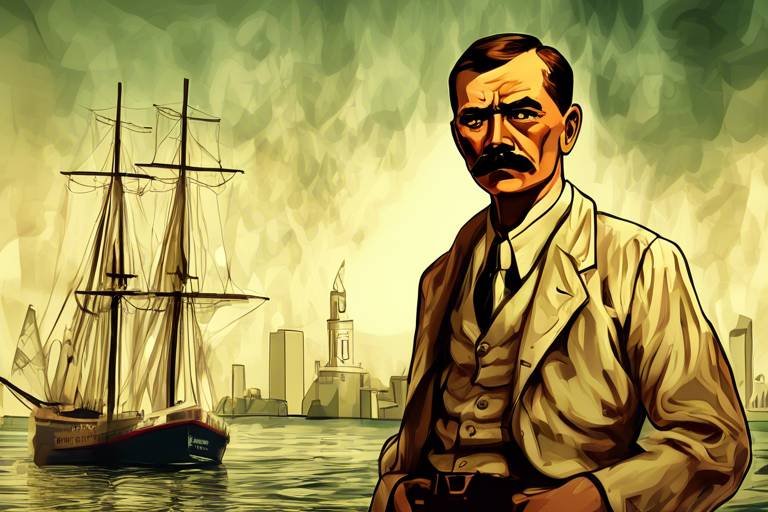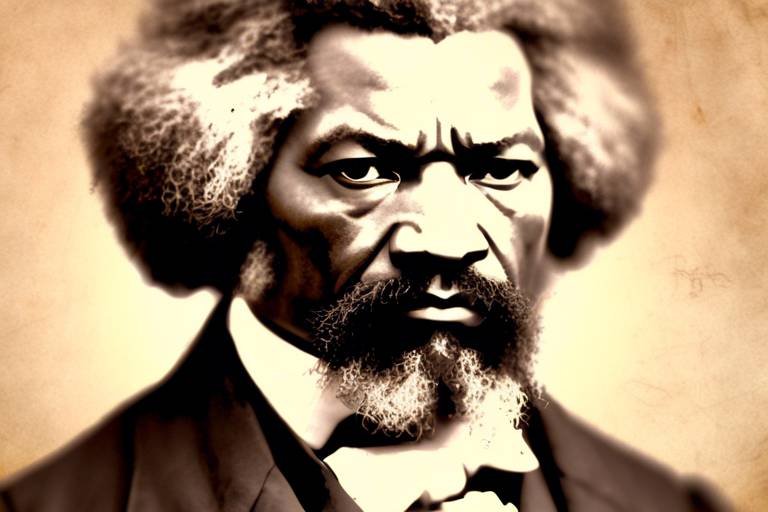Suleiman the Magnificent: The Sultan Who Expanded an Empire
Known as one of the most powerful and influential rulers in the history of the Ottoman Empire, Suleiman the Magnificent left a lasting legacy through his remarkable leadership and strategic vision. Rising to power during a period of great turmoil and challenges, Suleiman's reign marked a golden era of expansion and prosperity for the empire.
From his early days, Suleiman displayed exceptional qualities that would shape his destiny. His upbringing and education prepared him for the responsibilities of rulership, instilling in him a deep sense of duty and ambition. As he ascended to the Ottoman throne, he embarked on a journey that would redefine the empire's boundaries and influence for generations to come.
Suleiman's rule was characterized by a series of groundbreaking reforms and innovative governance strategies. His administrative changes streamlined the empire's bureaucracy, while his legal reforms laid the foundation for a more just and efficient system of justice. These measures not only strengthened the empire internally but also enhanced its standing on the world stage.
One of the most notable aspects of Suleiman's reign was his military prowess and strategic acumen. Through a series of successful campaigns and conquests, he expanded the Ottoman Empire to its peak, capturing key territories and fortresses such as Belgrade, Rhodes, and Vienna. These military victories solidified Suleiman's reputation as a formidable leader and expanded the empire's influence across continents.
Aside from his military achievements, Suleiman was also a great patron of the arts and architecture. His support for cultural endeavors and iconic structures like the Suleymaniye Mosque enriched the empire's cultural heritage and left a lasting impact on the architectural landscape of the era.
The legacy of Suleiman the Magnificent continues to resonate today, shaping the course of history in the region and beyond. His diplomatic strategies, alliances, and conflicts with European powers played a crucial role in shaping the geopolitics of the time, leaving a mark on international relations for years to come.
Moreover, Suleiman's approach to religious diversity and his policies towards non-Muslims within the empire demonstrated a level of tolerance and inclusivity that was ahead of its time. The millet system under his rule allowed for religious autonomy and coexistence, setting a precedent for multiculturalism within the empire.
However, following Suleiman's death, the Ottoman Empire faced a period of decline, marked by internal strife and external pressures. His successors struggled to maintain the empire's former glory, ultimately leading to the end of an era of expansion and prosperity that defined Suleiman's reign.
In conclusion, Suleiman the Magnificent's legacy as the Sultan who expanded an empire remains a testament to his vision, leadership, and enduring impact on history. His reign symbolizes a time of great achievements and challenges, shaping the course of the Ottoman Empire and leaving a legacy that continues to be studied and admired to this day.
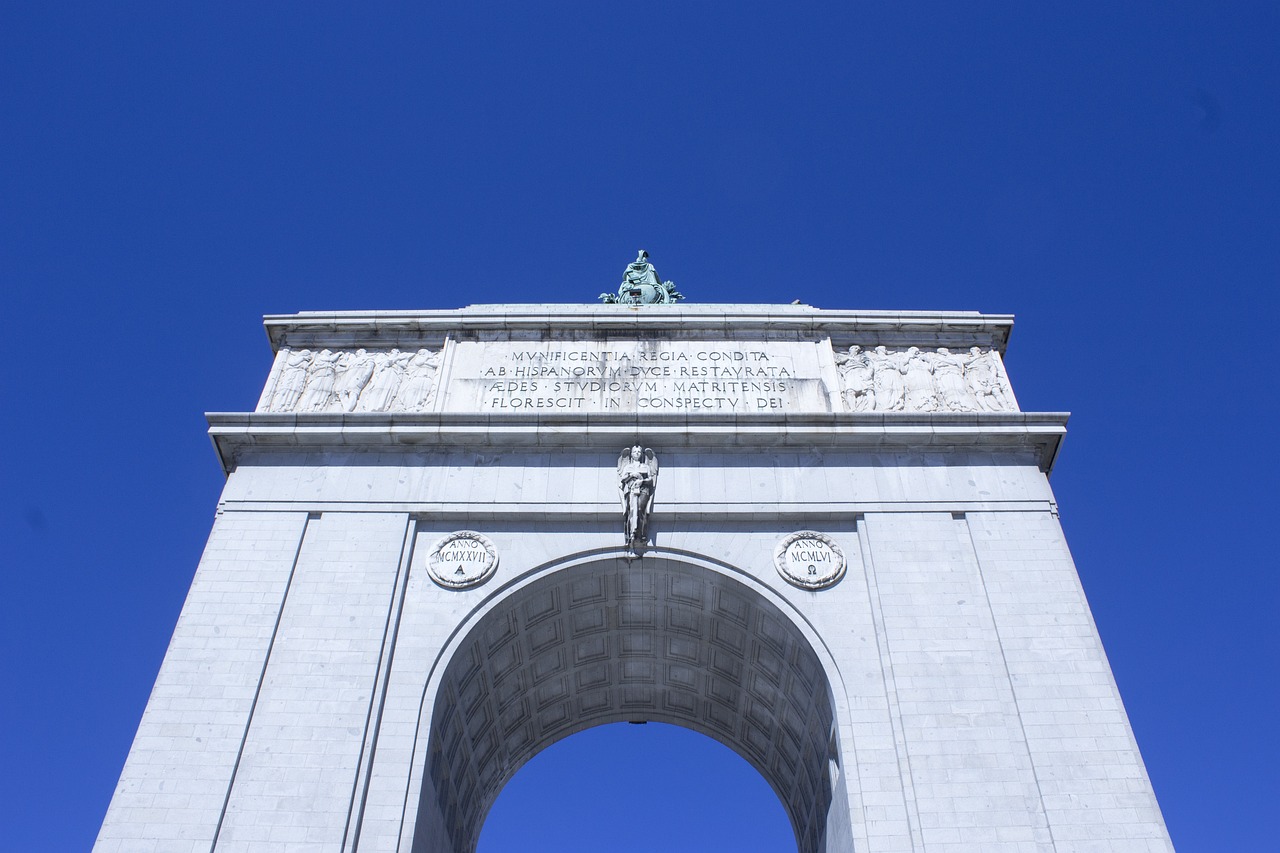
Early Life and Rise to Power
Suleiman, born in 1494, was the son of Sultan Selim I and Hafsa Sultan. His early life was marked by a rigorous education in the arts, literature, and military tactics, preparing him for the challenges of rulership. As a young prince, Suleiman showed great promise, displaying intelligence, charisma, and a keen interest in governance.
Upon the death of his father, Sultan Selim I, in 1520, Suleiman ascended to the Ottoman throne at the age of 26. His rise to power was met with both anticipation and skepticism, as he inherited an empire on the brink of expansion and faced internal and external threats.
One of the defining moments of Suleiman's early reign was his marriage to Hurrem Sultan, a significant event that not only solidified his power but also influenced his decisions as a ruler. Hurrem Sultan's intelligence and political acumen played a crucial role in shaping Suleiman's policies and governance strategies.
Under the guidance of his mentor, Ibrahim Pasha, Suleiman embarked on a series of administrative reforms aimed at centralizing power, streamlining bureaucracy, and ensuring the efficient management of the empire. These early initiatives set the stage for Suleiman's ambitious vision of expansion and prosperity.
As Suleiman consolidated his rule, he demonstrated a unique blend of military prowess and diplomatic finesse, earning him the title "The Magnificent." His early victories in military campaigns against the Safavids and Mamluks showcased his strategic acumen and solidified his reputation as a formidable leader.
Through a combination of military conquests, strategic alliances, and diplomatic maneuvers, Suleiman laid the foundation for the Ottoman Empire's golden age, setting the stage for a period of unprecedented growth and influence in the region.

Reforms and Governance
Suleiman the Magnificent, known for his strategic reforms and effective governance, implemented significant changes that shaped the Ottoman Empire during his reign. His administrative prowess and legal reforms laid the foundation for a well-structured and efficient system that contributed to the empire's growth and stability.
One of Suleiman's key reforms was the establishment of a centralized government structure, streamlining decision-making processes and ensuring swift implementation of policies across the vast empire. This centralized approach enhanced communication and coordination among different regions, fostering unity and coherence within the Ottoman administration.
Furthermore, Suleiman introduced a series of legal reforms aimed at ensuring justice and fairness for all subjects of the empire. These reforms included the codification of laws, the establishment of impartial judicial systems, and the protection of individual rights. By modernizing the legal framework, Suleiman aimed to create a more equitable society and strengthen the rule of law.
In addition to administrative and legal reforms, Suleiman implemented governance strategies that prioritized the welfare of his subjects. He focused on improving infrastructure, promoting trade and commerce, and investing in education and healthcare. By prioritizing the well-being of the population, Suleiman aimed to enhance the overall quality of life within the empire and secure the loyalty of his subjects.
Suleiman's emphasis on good governance and effective reforms not only strengthened the Ottoman Empire internally but also enhanced its standing on the global stage. His strategic vision and innovative policies set a precedent for future rulers and left a lasting legacy that continues to be studied and admired to this day.
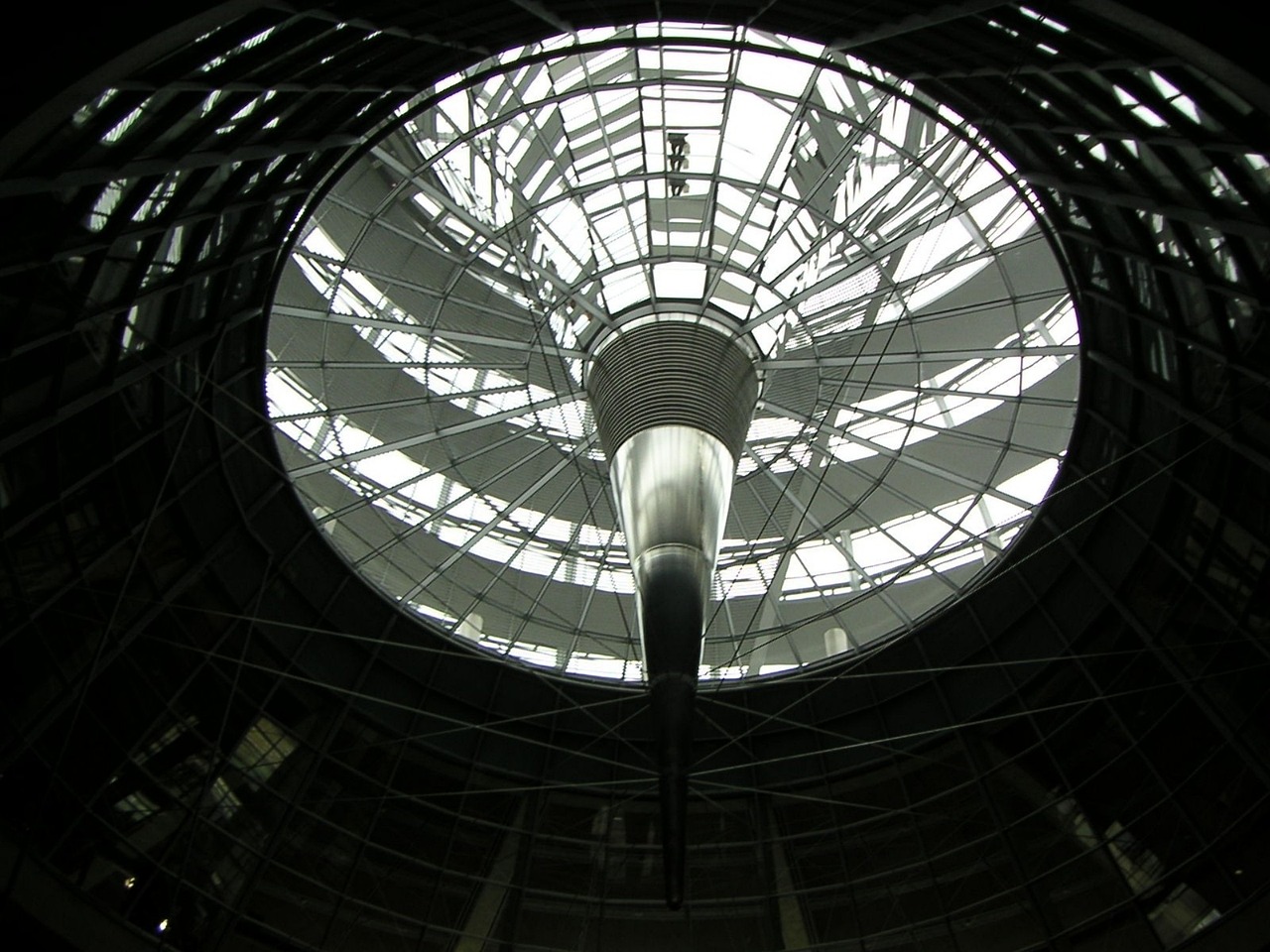
Military Campaigns and Conquests
During his reign, Suleiman the Magnificent embarked on numerous military campaigns and conquests that solidified the power and influence of the Ottoman Empire. One of his notable achievements was the successful siege of Belgrade in 1521, a strategic fortress that had long been a target for Ottoman expansion. By capturing Belgrade, Suleiman secured a key position in the Balkans and demonstrated the military prowess of his forces.
Another significant event in Suleiman's military career was the siege of Rhodes in 1522. The Knights Hospitaller, a Christian military order, defended the island fiercely against the Ottoman forces, but ultimately surrendered after a prolonged siege. This victory further extended Ottoman control in the eastern Mediterranean and showcased Suleiman's determination in expanding his empire.
One of the most iconic moments in Suleiman's military campaigns was the siege of Vienna in 1529. Although the Ottomans were unable to capture the city, the siege marked the furthest advance of the Ottoman Empire into Europe at that time. The failed siege of Vienna, while not a conquest, demonstrated the Ottoman threat to Western powers and the ambitious nature of Suleiman's military campaigns.
Throughout his reign, Suleiman led campaigns that resulted in the conquest of key territories, including parts of Hungary, Iraq, and North Africa. These conquests expanded the Ottoman Empire to its peak territorial extent and established Suleiman as a formidable ruler in the eyes of his contemporaries.

Cultural and Architectural Legacy
Suleiman the Magnificent's legacy goes beyond military conquests and political achievements; his cultural and architectural impact reshaped the Ottoman Empire's identity. As a patron of the arts, literature, and architecture, Suleiman fostered a vibrant cultural environment that left a lasting mark on history. His support for artists, poets, and scholars enriched the empire's cultural landscape, creating a legacy that transcended his reign.
One of the most iconic architectural achievements of Suleiman's era is the Suleymaniye Mosque in Istanbul. Designed by the renowned architect Mimar Sinan, this masterpiece stands as a testament to Ottoman architectural prowess. Its grand domes, intricate tile work, and towering minarets reflect the opulence and grandeur of the era. The mosque not only served as a place of worship but also as a symbol of the empire's cultural sophistication and religious devotion.
Furthermore, Suleiman's support for literature and poetry contributed to the flourishing of Ottoman literature during his reign. Poets like Baki and Fuzuli found patronage in his court, producing timeless works that celebrated the empire's glory and Suleiman's reign. The royal library, stocked with rare manuscripts and scholarly works, became a hub of intellectual activity, attracting scholars from across the empire.
In addition to his patronage of the arts, Suleiman's architectural projects extended beyond mosques. He commissioned the construction of palaces, bridges, and public buildings that showcased the empire's architectural prowess. These structures not only served functional purposes but also symbolized the empire's power and magnificence, leaving a lasting imprint on the urban landscape.
Suleiman's cultural and architectural legacy continues to inspire awe and admiration, reflecting his vision of a sophisticated and prosperous Ottoman Empire. His patronage of the arts and architectural innovations set a standard of excellence that defined the empire's cultural identity for generations to come.
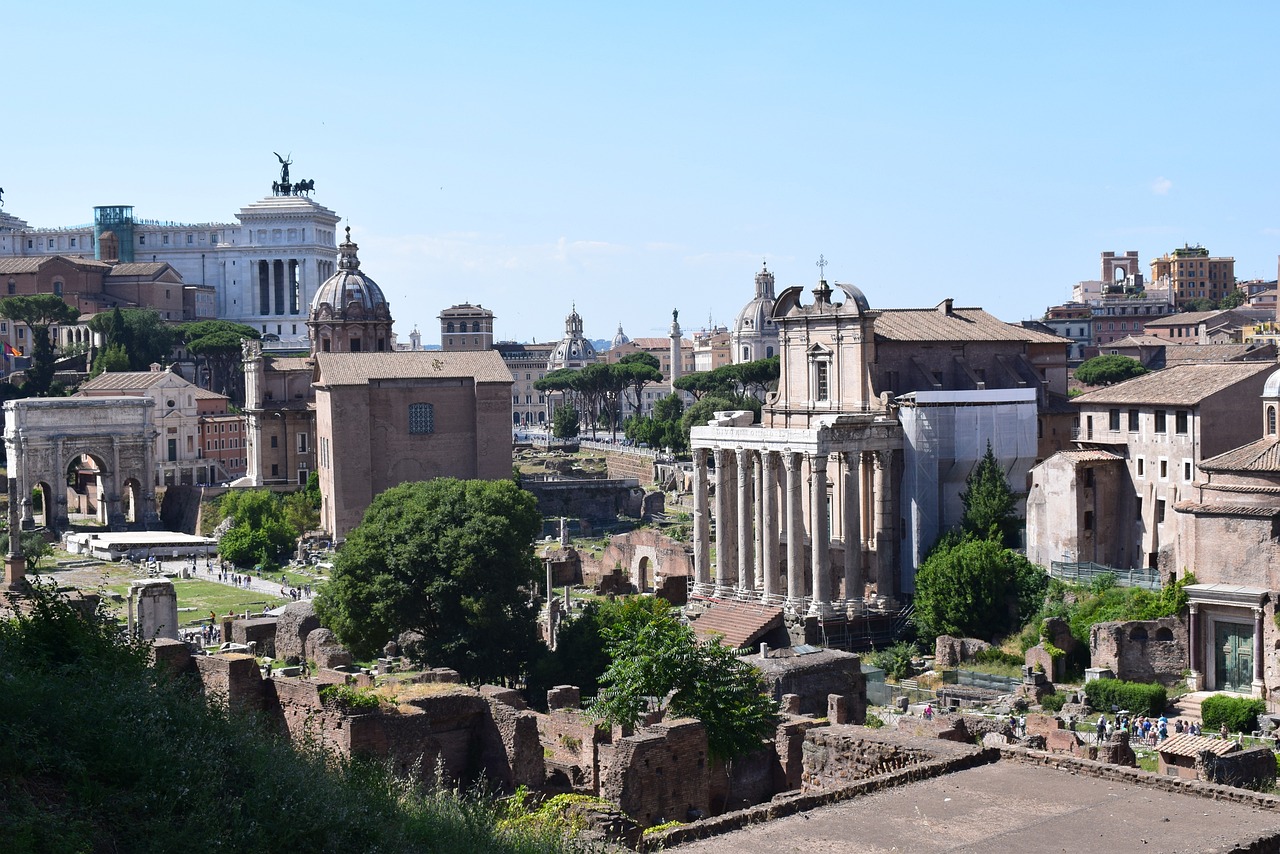
Legacy and Impact
As the sun sets on Suleiman the Magnificent's reign, his legacy casts a long shadow over the Ottoman Empire. The impact of his rule reverberates through the annals of history, leaving behind a tapestry of conquests, reforms, and cultural achievements that define an era of grandeur and power.
Suleiman's legacy is intricately woven into the fabric of the Ottoman Empire, shaping its identity and trajectory for generations to come. His reputation as a ruler of unparalleled wisdom and military prowess solidified his place in history as one of the most influential leaders of his time.
One of the most enduring legacies of Suleiman's reign is the expansion of the Ottoman Empire to its peak, encompassing vast territories and diverse populations under its rule. His military campaigns and conquests not only secured the empire's borders but also established it as a formidable force on the world stage.
Furthermore, Suleiman's governance reforms and administrative policies laid the foundation for a period of stability and prosperity within the empire. His emphasis on justice, fairness, and efficiency in governance set a precedent for future rulers to follow, ensuring the continuity of his legacy.
On a cultural and architectural level, Suleiman's patronage of the arts and architecture left an indelible mark on the landscape of the Ottoman Empire. The iconic Suleymaniye Mosque stands as a testament to his vision and taste, symbolizing the fusion of artistic expression and religious devotion.
Moreover, Suleiman's diplomatic acumen and international relations strategies shaped the geopolitics of the era, forging alliances and navigating conflicts with European powers. His adept handling of foreign affairs elevated the Ottoman Empire to a position of influence and respect on the global stage.
Despite the eventual decline of the Ottoman Empire following Suleiman's death, his legacy continued to exert influence over the region and beyond. The era of expansion and prosperity that he ushered in marked a golden age in Ottoman history, leaving an indelible imprint on the course of events to come.
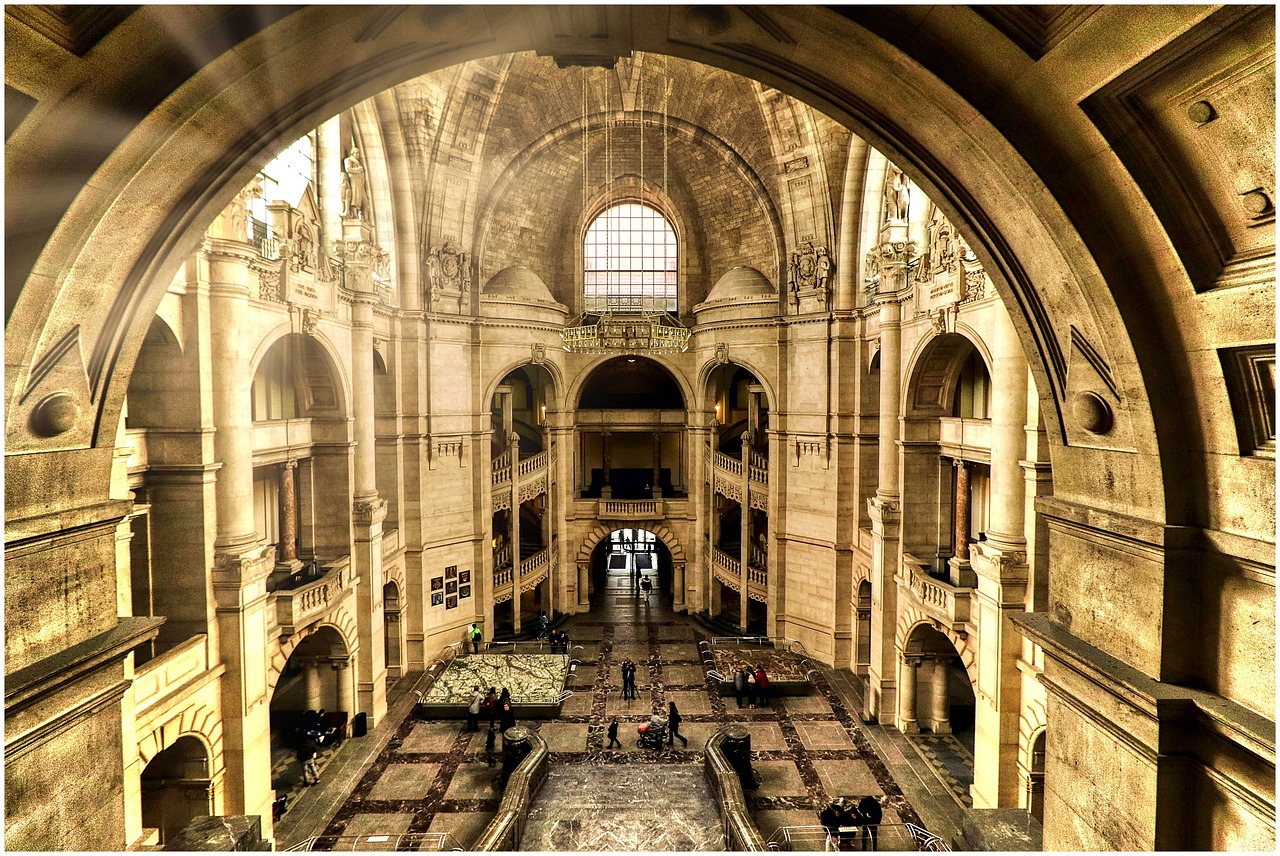
Relationships and Family Life
Suleiman the Magnificent, known for his prowess as a ruler, also had a rich personal life that significantly influenced his reign. Central to his relationships was his bond with his wife, Hurrem Sultan, who played a pivotal role in the political landscape of the Ottoman Empire. Their partnership was not only a union of love but also a strategic alliance that shaped many decisions during Suleiman's rule.
Moreover, Suleiman's relationships with his sons, particularly his eldest, Mustafa, were marked by both affection and political tension. The intricate dynamics within the royal family often reflected the complexities of power and succession in a vast empire.
Family gatherings and court life provided glimpses into Suleiman's personal side, showcasing his interactions with his children, siblings, and extended family members. These intimate moments contrasted with the grandeur of his public image, revealing a multifaceted ruler who juggled familial responsibilities alongside the demands of governance.
Furthermore, Suleiman's family connections extended beyond the palace walls, encompassing alliances with influential noble families and tribal leaders. These networks of loyalty and patronage were essential for maintaining stability and support for his rule, highlighting the intricate web of relationships that underpinned the Ottoman social and political fabric.

Diplomacy and International Relations
When it comes to diplomacy and international relations, Suleiman the Magnificent was a master strategist who skillfully navigated the complex web of alliances and conflicts that characterized the geopolitical landscape of his time. His diplomatic efforts were instrumental in shaping the Ottoman Empire's relations with European powers and neighboring states, solidifying its position as a major player on the world stage.
One of Suleiman's key diplomatic strategies was the use of marriage alliances to forge political connections and secure alliances. By marrying off his daughters to foreign rulers and forming strategic partnerships through marriage, Suleiman was able to strengthen the Ottoman Empire's position and expand its influence in the region.
Furthermore, Suleiman was known for his adept handling of international conflicts, often using diplomacy to resolve disputes and avoid unnecessary bloodshed. His diplomatic skills were particularly evident in his interactions with European powers such as the Habsburgs and the Venetians, where he employed a combination of military might and negotiation to achieve his goals.
Additionally, Suleiman's diplomatic prowess extended to his management of trade relations with foreign powers, fostering economic ties that benefited both the Ottoman Empire and its trading partners. Through treaties and trade agreements, Suleiman was able to promote commerce and exchange goods across borders, contributing to the prosperity of his empire.
Overall, Suleiman the Magnificent's diplomatic acumen and international relations strategies played a crucial role in shaping the Ottoman Empire's position in the world and securing its status as a formidable global power during his reign.

Religious Policies and Tolerance
During his reign, Suleiman the Magnificent implemented a series of religious policies that showcased his commitment to tolerance and diversity within the Ottoman Empire. One of the key aspects of Suleiman's approach was the establishment of the millets system, which granted autonomy to various religious communities, allowing them to govern their own internal affairs. This system not only ensured the protection of minority rights but also contributed to the overall stability of the empire by fostering harmony among different religious groups.
Furthermore, Suleiman demonstrated a tolerant attitude towards non-Muslims, particularly Christians and Jews, within his realm. He appointed non-Muslim officials to high-ranking positions and encouraged interfaith dialogue and cultural exchange among diverse communities. This inclusive approach not only promoted coexistence but also enriched the cultural tapestry of the Ottoman Empire, fostering a climate of intellectual flourishing and artistic creativity.
Moreover, Suleiman's religious policies were not only motivated by a desire for political stability but also by a genuine belief in the importance of religious freedom and mutual respect among different faiths. His commitment to tolerance set a precedent for future rulers and contributed to the Ottoman Empire's reputation as a beacon of religious pluralism in a time of religious conflicts and intolerance.

End of an Era: Suleiman's Successors
After the death of Suleiman the Magnificent in 1566, the Ottoman Empire entered a period of decline marked by a series of weak rulers who were unable to maintain the empire's previous glory. Suleiman's immediate successor, Selim II, lacked his father's military prowess and leadership skills, leading to a stagnation in the empire's expansion.
During Selim II's reign, the Ottoman Empire faced internal strife, corruption, and economic challenges that further weakened its foundations. The once powerful empire began to lose territories and influence on the international stage, signaling the end of an era of Ottoman dominance.
Following Selim II, Murad III ascended to the throne and continued the trend of ineffective leadership. His reign was characterized by a focus on luxury and indulgence, neglecting the pressing issues of governance and military strength. The empire's decline accelerated under his rule, paving the way for future crises.
By the time Mehmed III took the throne after Murad III's death, the Ottoman Empire was in a state of disarray. Mehmed III's reign was marked by political instability, revolts, and military defeats, further hastening the decline of the once mighty empire.
The succession of weak rulers after Suleiman the Magnificent ultimately contributed to the gradual disintegration of the Ottoman Empire, leading to its eventual collapse in the early 20th century. The era of expansion and prosperity that characterized Suleiman's reign came to an end, leaving a legacy of missed opportunities and internal struggles for his successors to grapple with.
Frequently Asked Questions
- Who was Suleiman the Magnificent?
Suleiman the Magnificent, also known as Suleiman I, was the tenth and longest-reigning Sultan of the Ottoman Empire. He ruled from 1520 to 1566 and is renowned for his military campaigns, administrative reforms, and cultural patronage.
- What were some of Suleiman's major military achievements?
Suleiman's military successes include the conquest of Belgrade, the sieges of Rhodes and Vienna, and the expansion of the Ottoman Empire into parts of Europe, Asia, and Africa. His campaigns left a lasting impact on the empire's territorial reach.
- How did Suleiman contribute to the cultural and architectural legacy of the Ottoman Empire?
Suleiman was a notable patron of the arts, literature, and architecture. His support led to the construction of iconic structures like the Suleymaniye Mosque in Istanbul and the development of a rich cultural heritage that continues to influence the region.
- What was Suleiman's approach to governance and religious tolerance?
Suleiman implemented administrative reforms, legal changes, and religious tolerance policies during his reign. He established the millet system, which granted autonomy to non-Muslim communities within the empire, showcasing his commitment to religious diversity.
- What was the impact of Suleiman's rule on the Ottoman Empire and future generations?
Suleiman's reign marked a period of expansion and prosperity for the Ottoman Empire. His legacy as a strong ruler, military strategist, and cultural patron continues to shape perceptions of the empire's golden age and influence historical narratives.







